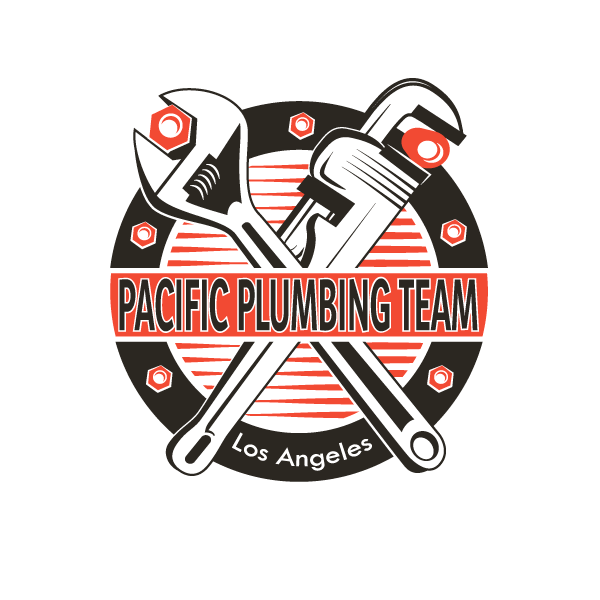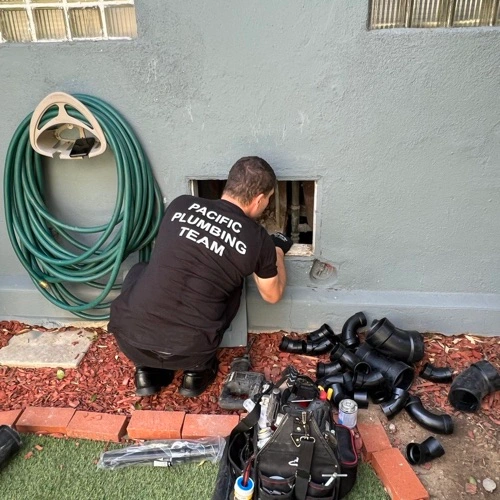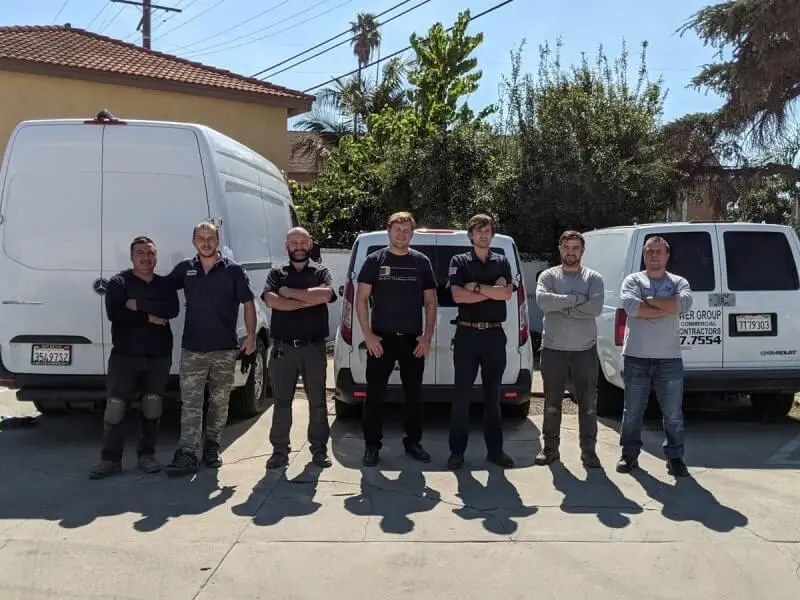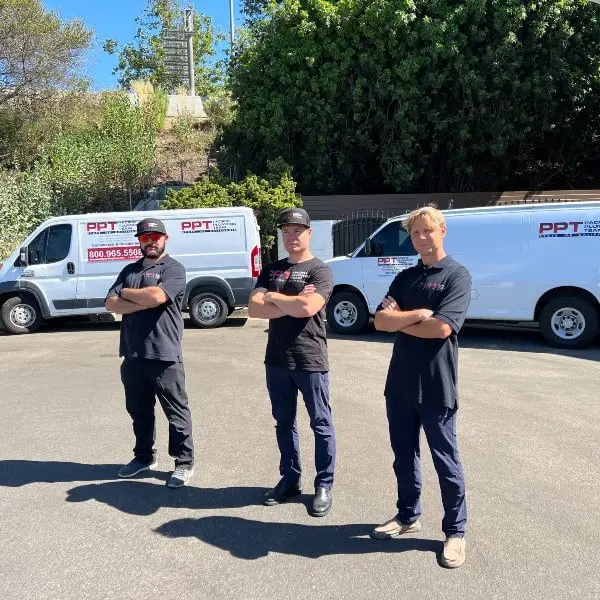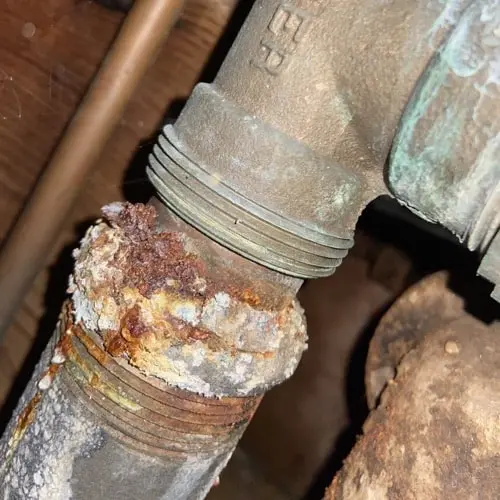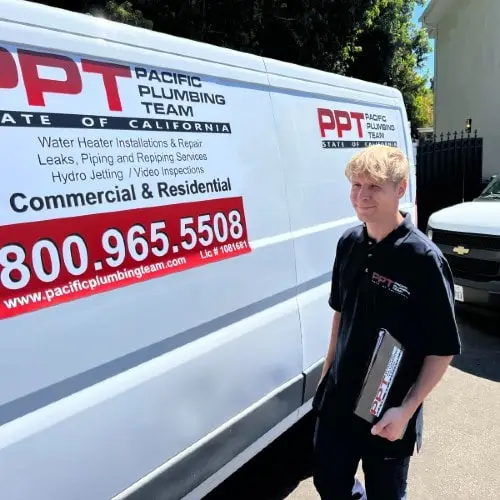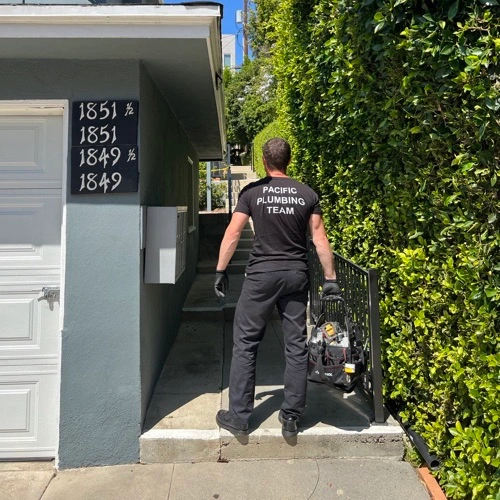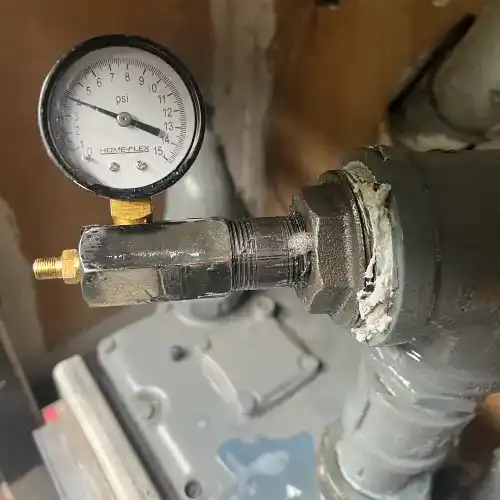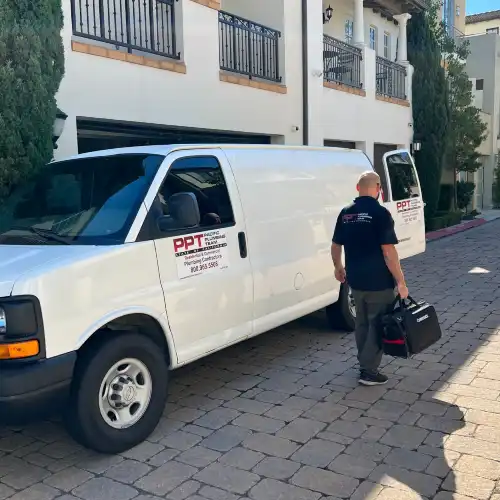A Guide for Los Angeles Homeowners in the Winter 2023 Season
As the winter chill sets in, many homeowners like yourself in West Los Angeles may find themselves concerned about the possibility of frozen pipes. We’re here to share some valuable insights on how to prevent your pipes from freezing and bursting during the ’23 winter season in LA, California. Our friendly guide is tailored to homeowners like you who are ready to safeguard your home from the inconvenience and potential damage caused by frozen pipes.
Frozen Pipes FAQs
What Do You Do If Your Pipes Freeze?
Despite your best efforts, pipes may still freeze. If you find yourself in this situation:
Locate the Frozen Section: Identify the frozen section by checking for frost on the exterior of the pipe or a noticeable drop in water flow.
Open Faucets: Open faucets connected to the frozen pipe to relieve pressure and allow water to flow once the pipe thaws.
Thaw Gently: Use a hairdryer, heat lamp, or warm towels to gently thaw the frozen pipe. Avoid using open flames or excessive heat, as this can damage the pipe.
- Call Pacific Plumbing Team: If you are unable to fix your frozen pipes on your own, give us a call! With 24/7 emergency help and a full team of licensed plumbing professionals, we’re here to assist anytime, anywhere in the West Los Angeles area.
What Temperature Will Pipes Freeze At?
Understanding the critical temperature at which pipes are susceptible to freezing is the first step in prevention. In California, winters are generally mild, but it’s not unheard of to experience colder temperatures, especially during the nighttime. Pipes can start freezing when the temperature drops below 32°F (0°C). However, it’s crucial to note that factors like wind chill, insulation, and the duration of cold temperatures can influence when freezing occurs. Make sure to check your local news station to keep an eye out for any colder-than-normal conditions.
How to Keep Your Water Pipes From Freezing
Taking preventative measures to prevent your pipes from freezing this 2023 winter season is the best way to stop a problem from happening. So, how should you keep your water pipes from freezing?
- Insulate Your Pipes: One effective way to protect your pipes is by insulating them. Use materials like foam pipe insulation or heating tape to wrap exposed pipes, especially those in unheated areas like the garage or crawl spaces.
- Seal Gaps and Cracks: Cold air can seep into your home through gaps and cracks, increasing the risk of frozen pipes. Seal these openings with caulk or weatherstripping to keep the cold air out and the warm air in.
- Use Heating Cables: For added protection, consider installing heating cables on vulnerable pipes. These cables generate heat to prevent freezing. However, be sure to follow the manufacturer’s instructions and guidelines.
These 3 simple steps can help stop any potential freezing. If you have any questions about any issues with your water pipes, contact our friendly team! We’d be happy to help.
What to Use to Cover Pipes From Freezing
If you’re looking for what to put over your pipes to prevent them from getting too cold and freezing, try one of these two solutions:
- Pipe Sleeves: Invest in pipe sleeves made of foam or fiberglass. These are easy to install and provide an additional layer of insulation to keep your pipes from freezing.
- Heat Tape: Heat tape, also known as trace heating, is an electrically-heated cable designed to prevent freezing. It can be wrapped around pipes and controlled by a thermostat to maintain an optimal temperature.
To learn more about the pipes in your home, click here!
Gas and Pipe Repair
Make sure you’re checking in on the gas and pipes in your home, especially when there’s a large change in temperature. To learn more, read here for our tips to help prevent gas and pipe disasters.
Keep Your Pipes From Freezing and Bursting
Preventing frozen pipes is a proactive measure that can save you from the headaches of burst pipes and water damage. By insulating, sealing gaps, and utilizing heating solutions, you can enjoy a worry-free winter in your West Los Angeles home. For any plumbing concerns or assistance, don’t hesitate to reach out to Pacific Plumbing Team. Stay warm and keep those pipes protected!
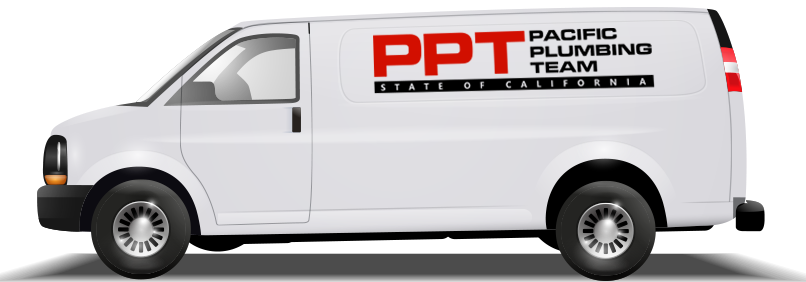
Contact Pacific Plumbing Team Today
We want your home to stay safe and undamaged, so don't hesitate to ask us any questions you may have during this winter season regarding your home's pipes. Let us know how we can assist you! We offer repair, maintenance, and more in the West Los Angeles area.
